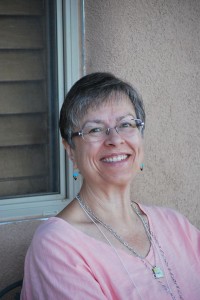For the last year I have indulged in a subtle form of
self-flagellation by keeping a calendar of my writing days.
On days when I write, I get a green star on
the calendar. On days without writing, the blank white calendar square stares
at me reproachfully.
A few days ago,
feeling guilty about one more day away from my writing desk with no poems
drafted or revised, no blog posts written, one more day when I could not put a
star on the calendar, it suddenly occurred to me that I had just spent the last
three days working for hours on curriculum for my upcoming classes.
For that curriculum I created writing prompts
for my students to follow, crafted sentence frames to help them generate ideas,
researched sources for them to use, wrote my own examples of assignments to
model for them and then revised my ideas until I felt they were ready to give
to students.
Let me see, the words I
just used were “created,” “crafted,” “researched,” “wrote” and “revised” – all
words that are used by people who write.
So why – after all these years – have I never seen the writing I do for
my teaching job as real writing?
This
led me to the question – just what do I mean by “real” writing?
As with most people who call themselves writers, I have a day
job that earns me the money that allows me to keep body and soul together (and
have a comfortable middle class lifestyle – no artist in the garret for me!) so
that I can write. However, unlike many writers – and unlike
myself for many, many years before becoming a teacher - my day job is not just
something I do because of necessity. My
day job is something that I love and find incredibly rewarding and
creative. In fact, I have never thought
I really wanted be a “full-time” writer – to be truly fulfilled, I need to
teach as well as write. So if I think teaching
is so creative – truly an art – then why do I ignore the writing I do for that
art? Instead of saying I hadn’t written
for the last three days, why didn’t I just name what kind of writing I did –
educational writing?
The day of that revelation I had lunch with my friend
Barbara Ann Yoder, a fellow writer and writing coach.
Barbara has written a book about writing
primarily aimed for women who have trouble slaying their writing demons.
I met her at the AROHO Retreat in New
Mexico last August, but luckily for me she also lives in the Bay Area. We’ve
started to meet now and then to talk about our writing lives -- and our demons.
That day, sitting outside the Ferry Building
on one of those sunny days so rare for summer in San Francisco, I told her
about my new conflict. She suggested that perhaps my writing calendar couldn't
tell the truth of my writing life.
Just having a small space to show yes or no – so black and white, so
unlike my writing life that ebbs and flows, has fits and starts –doesn’t let me
tell the whole story.
Barbara gave me a tip that she has shared with some of her clients: keep a writing journal in which I record what I create - or don't create - each day as well as a short reflection about my thoughts and feelings about that day's work. This idea resonated with me. I know how important self-reflection is for my own students. I have them reflect about their writing all the time. Why didn't I think about it for myself? I had nothing to lose. Besides, it would give me a chance to buy another journal to add to my large collection.

After several days of online research looking for the perfect tool for this new way of recording my work, I found what I wanted at
Journals and Notepads (coincidentally owned by Deonne Kahler, another AROHO friend!): a weekly calendar that would give me a small space to write about each day with a place to list plans for future projects. I wanted to keep my notes brief, otherwise I would be tempted to spend all my time writing about writing instead of actually writing.

Since the day my journal arrived, I have recorded my progress each day. I still have conflicting feelings about the days when I don't work on what I'm now calling, for lack of a better term, my artistic writing. However, being able to record the events or emotions of a day when I haven't been able or willing to sit at my desk has helped me feel better about my work. I also can give myself credit (doesn't that sound like a teacher?) for my educational writing.
I still keep my calendar as well, and only give myself a green star for a day with artistic work. After all, even though I know I work with many kinds of writing each day, the words that make me
feel like a writer are the ones in a poem or memoir or this blog.
So, I thank Barbara for giving me some better tools to sustain me and supporting me to get a little clearer about how I think of myself as a writer. That journal has already helped to keep me from derailing myself when guilt or doubt creeps up. Unfortunately, I'm the still only person who can get me back to the writing desk - even the best writing coach in the world couldn't do that.































